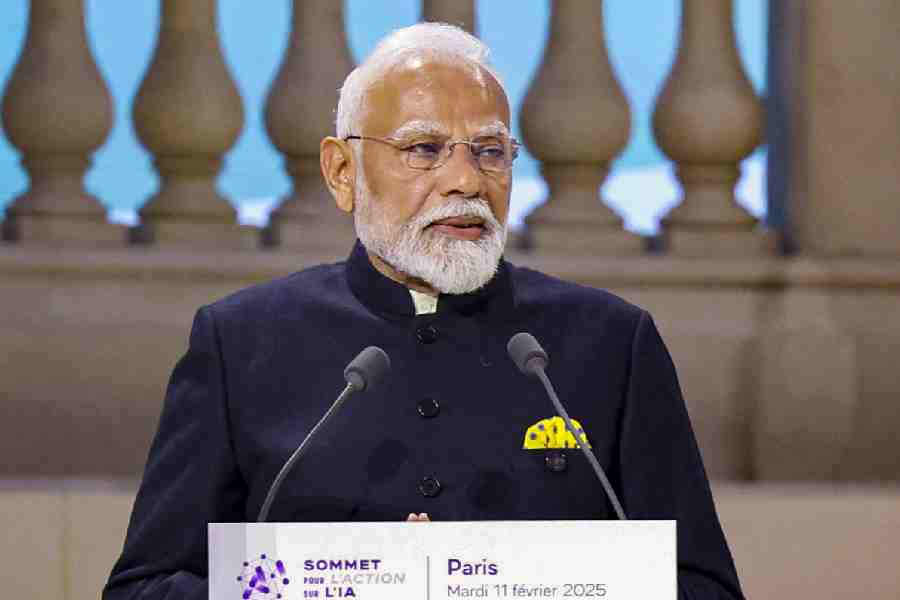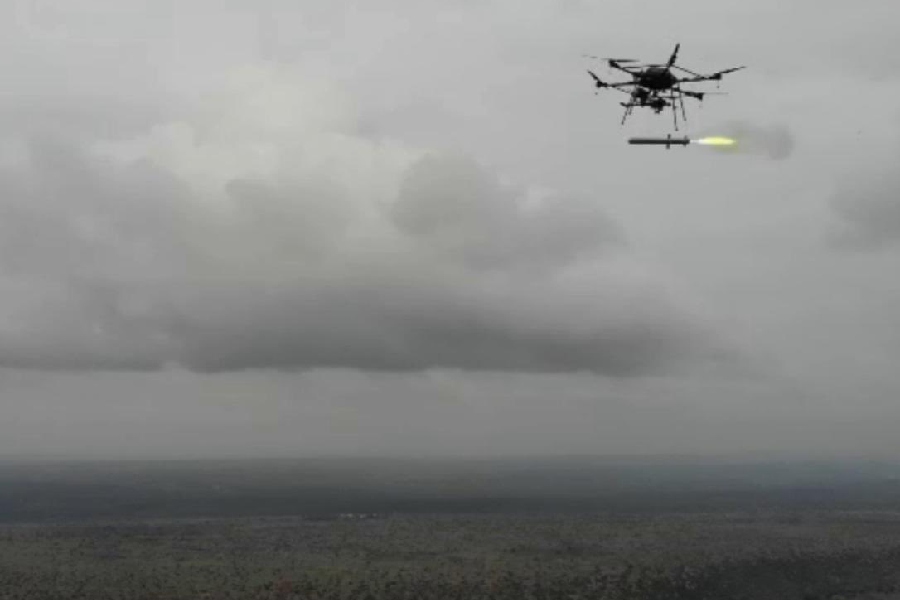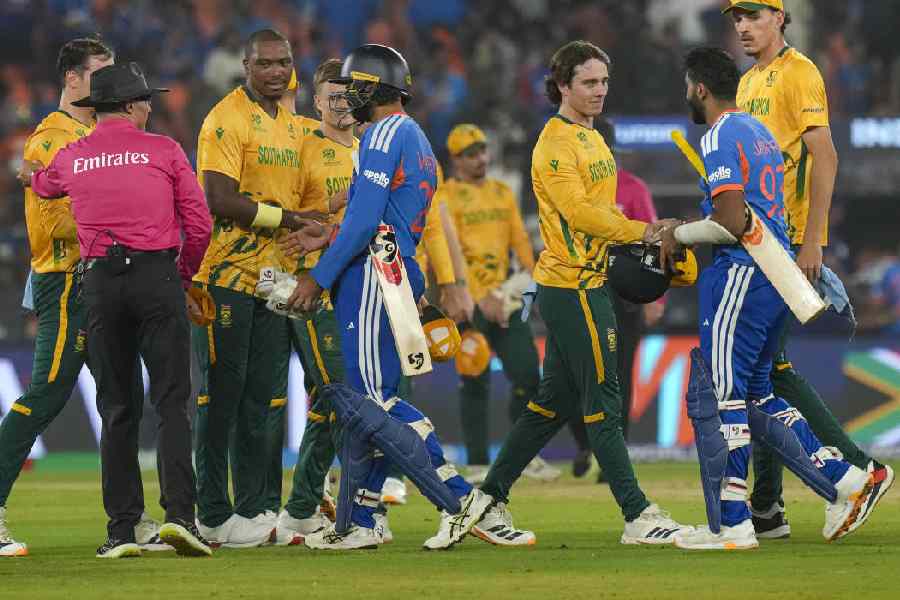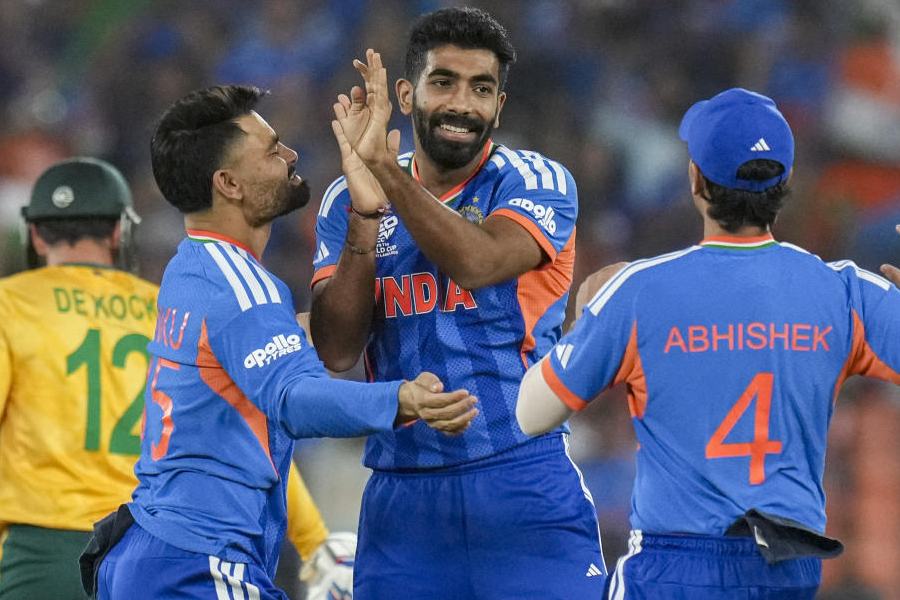The Supreme Court on Wednesday questioned the growing culture of governments and political parties handing out freebies, particularly during elections, asking: “Are we not creating a class of parasites instead of integrating them into the mainstream society by giving them employment?”
“Rather than permitting them to be a part of the mainstream society by contributing to the development of the nation, are we not creating a class of parasites?” Justice B.R. Gavai, heading a bench, asked attorney-general R. Venkataramani, appearing for the Centre, and advocate Prashant Bhushan, representing some PIL petitioners in a matter relating to free urban shelters for the homeless.
Prime Minister Narendra Modi had coined the phrase “revri (sweetmeat) culture” ahead of the 2024 Lok Sabha polls to criticise the Opposition’s promise of freebies, but had run into allegations of the BJP itself offering such incentives to voters in election after election.
During Wednesday’s hearing, the bench, which also had Justice Augustine George Masih, went through the affidavit filed by the petitioners complaining about the lack of adequate shelters in the country. The court questioned the tendency of governments and parties to offer pre-election sops, which was creating an increasing band of freeloaders — so much so that even agriculturists were finding it difficult to find labourers for cultivation.
“Unfortunately, because of these freebies which are announced just on the anvil of elections, like Ladli Bahin and other schemes, the people are not willing to work. They are getting free rations and amounts without doing any work,” Justice Gavai said.
He added: “Look at the practical aspect. Nobody wants to work because they will get free ration and money. Yes, we have recognised the right to shelter as a fundamental right. Still, there has to be a balance…. I am telling you from personal experience — because of these freebies that some states give, like free ration, people don’t work.”
Bhushan interjected to suggest that there was no work available. Justice Gavai said: “You must be having one-sided knowledge. I come from an agricultural family. Because of the freebies in Maharashtra which they... announced prior to the elections (last November), agriculturists are not getting labourers. Everybody is getting free ration at home.”
Justice Gavai also rejected Bhushan’s argument that since the existing shelters were in a dilapidated state, people were forced to sleep on pavements. “Tell us which is better — a shelter home which is uninhabitable or sleeping on a road, which is more preferable?” the judge asked.
However, the bench added: “We quite appreciate your concern for their well-being but would it not be better to make them a part of the mainstream society and permit them to contribute to the development of the nation?”
The court pulled up another counsel for saying that various schemes have been formulated only for the benefit of the rich.
“Don’t bring politics here. Don’t make a political speech (meant for) the Ramlila Maidan in the court. We won’t permit our courtroom to be converted into a political battle,” the bench warned the advocate, who tried to clarify that he was only pointing out the shortcomings of the government. The Ramlila Maidan is a popular spot for protests in Delhi.
When attorney-general Venkataramani informed the bench that the Union government was in the process of finalising an urban poverty alleviation mission that would address all issues regarding poverty, including the provision of shelters for the homeless, the court asked the Centre to place this on record.
It also asked the central government to clarify whether it intended to continue the National Urban Livelihoods Mission till the new scheme is formulated.
Justice Gavai directed the Centre to collate details of shelters run by the states and Union Territories so that the court can make suggestions for a pan-India model.
Bhushan informed the bench that till December 2024, there were 2,557 urban shelters set up by various states and Union Territories, of which only 1,995 were functional. He said there were a mere 1.16 lakh beds available at the shelters.
The total number of shelters is grossly inadequate as in Delhi alone there are 3 lakh homeless people, Bhushan told the court.










